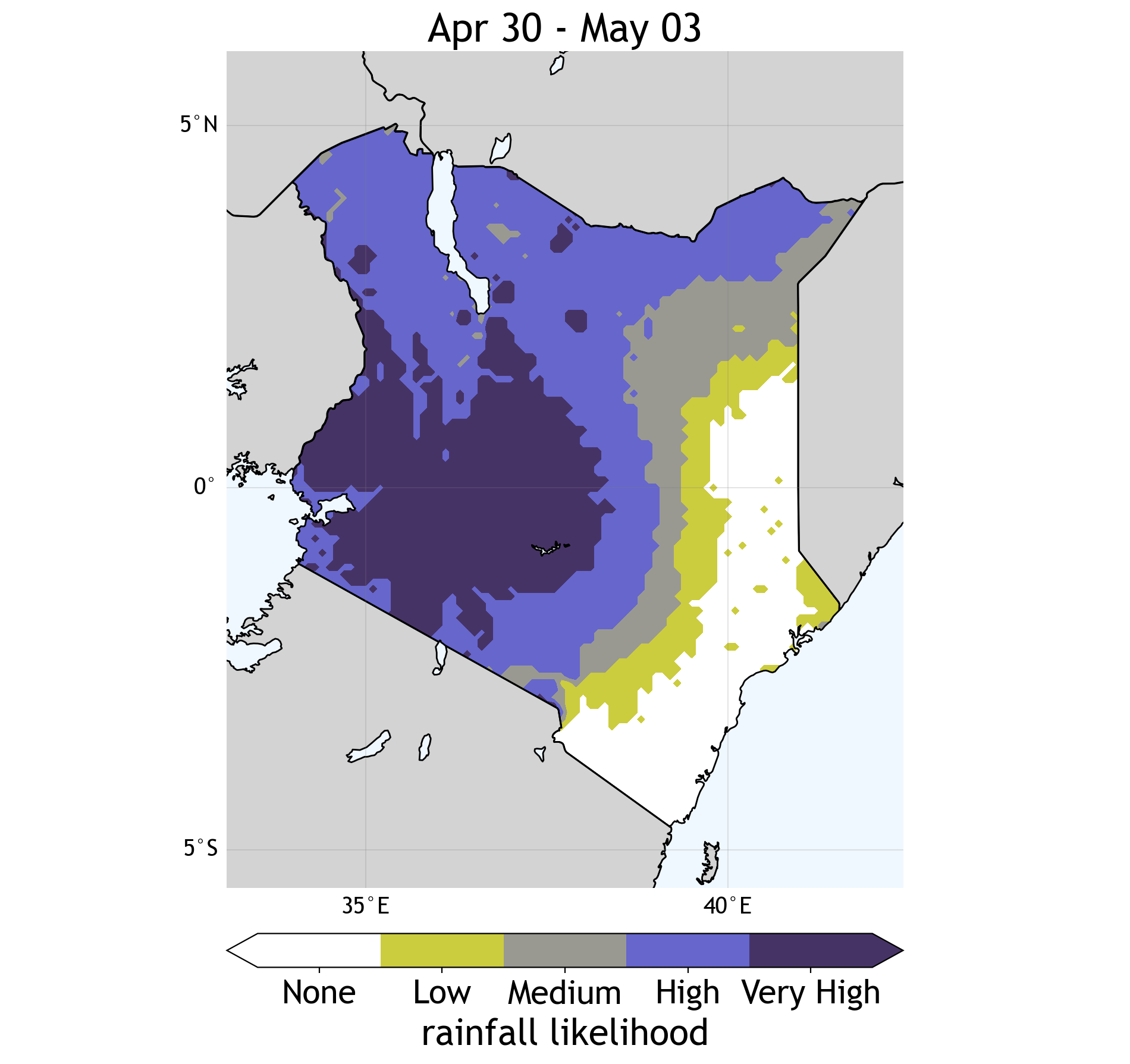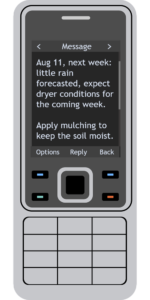Agro-Meteorological Forecasts
Accurate Weather Forecasts in a Changing Climate
With climate change altering rainfall patterns reliable weather forecasts, agro-advice and timely alarms are becoming invaluable, especially in the agricultural sector. Agriculture is very reliant on weather patterns – 80% of yield variations are determined by the weather. Farmers need a reliable mixture of sun, warmth, and rain to produce a steady supply of food. So, making tailored, accurate weather forecasts are vital to farm management.
At Weather Impact, we are driven to understand how weather affects stakeholders in the Agri-Food sector. We aim to simultaneously save resources and optimize production. Our smart software solutions are available as both web or mobile applications and often in local languages, including Swahili and Bengali. We deliver real-time agro-meteo forecasts to both public and private companies such as Dutch Royal Meteorological Institute KNMI, Auxfin Burundi, Wageningen University and the National Meteorology Agency NMA in Ethiopia, and directly to small-scale farmers in countries like Angola, Bangladesh, and many more.
“90% of the farmers in Ethiopia rate the SMS rain forecasts by Weather Impact as ‘accurate’ or ‘very accurate’, while 100% find it useful.”
How can we support farm management for small-scale farmers?
-Agro-Meteorological weather forecasts to optimize farm management
Our products and services are based on output from the ECMWF model. This model forecasts global weather at a nine km resolution – the best resolution available. Our products combine high-resolution global weather data with local field knowledge and are customized and scalable. We distinguish ourselves from other weather companies by providing tools that optimize decision-making based on weather probabilities. Typical farming activities such as planting, irrigating, or hiring labour workers are scheduled based on our services.
Fig.1 The rainfall likelihood forecast in Kenya. The figure is updated every Tuesday and represents the forecast from Tuesday to Thursday.
-Tailor-made weather forecasts for farmers to combat global warming
Our farm management service translates localized weather information into tailored messages for agricultural planning. The service supports farmers and other stakeholders to make the right decisions for their farm management. See the image below.
Our advisory services inform farmers and other stakeholders in the agri-value chain about:
- The suitability of the weather for specific activities, such as planting, fertilizing, or spraying;
- The favorability of the weather for the development of diseases;
- The number of days that temperatures will approach detrimental highs or lows;
- Current and potential drought conditions, based on the Standardized Precipitation Index (SPI) and forecasted evapotranspiration;
- The likelihood that irrigation will be needed.
“Combining our weather forecasts with crop growing cycles enables farmers dealing with the effects of global warming to make optimized decisions for their farm management.”
Fig. 2 Telephone SMS weather forecast.
-A tool for small-scale farmers to deal with unpredictable rainfall patterns.
Global food production is largely dependent on small-scale farmers who rely on unpredictable rainfall patterns for their production. The water available for crop growth is determined by natural rainfall patterns, and small-scale farmers often have no other source of irrigation. Weather affects almost every aspect of agricultural business, from determining the time of planting and harvests to the efficient planning of irrigation. So, knowledge about current and upcoming rainfall is crucial for successful farm management.
Accurate weather forecasts with local precision can form a crucial link to enabling small-scale farmers to become climate-smart and change resilient. With mobile phone technology, farmers can be easily reached with localized and personalized information. Weather Impact actively sends forecast messages to farmers in Kenya, Burundi, Ghana, and other African countries, either via simple text messages or mobile phone applications.



